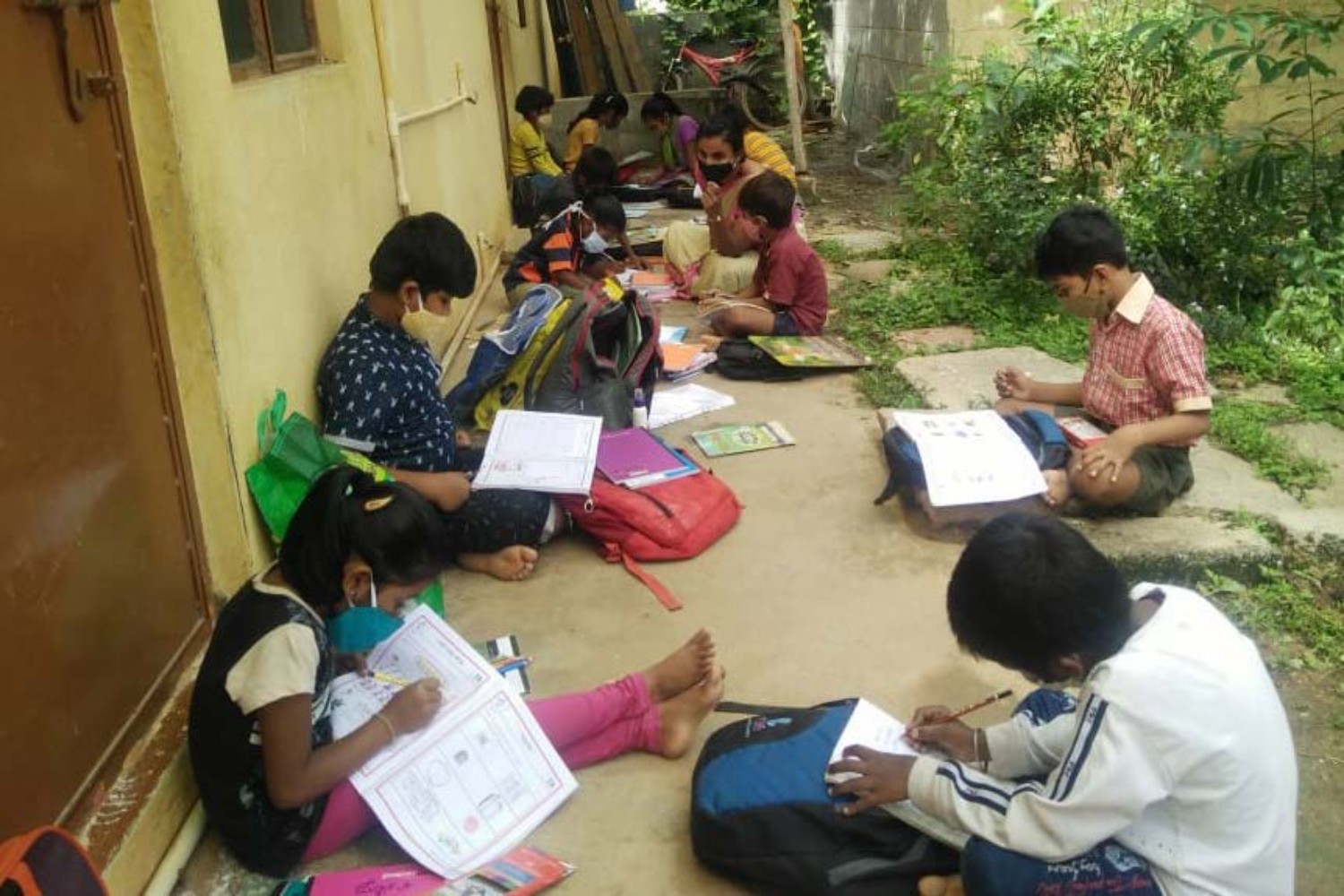Learning During COVID Times
we also carry a Photo Essay that features the work of two Bengaluru-based organizations - Makkala Jagriti and Gubbachi Learning Community – who have been facilitating the learning journeys of children from underserved communities.

Bringing Education Home
Teachers from Gubbachi Learning Community supported 35 children from a community with no access to running water and electricity in Bangalore. The teachers decided to take the learning to their homes as there was no way these children could take online classes. The teachers found innovative ways to introduce math concepts to children, using the material around them. They would then leave them with worksheets to continue the practice. Gubbachi Learning Community is a nonprofit working for the educational inclusion of out-of-school children in the city of Bangalore.

Making Online Learning Fun
Makkala Jagriti offered various webinar sessions to parents and children on how to make learning easier by producing basic learning resources that can be found simply around the house. Mohammed Ismail from Hale Sampigehalli Anganwadi has been practicing his everyday activities with his mother over YouTube sessions.

Teamwork, Makes the Dream Work
Thanujitha lives in Anjanapura, a suburb located in Bangalore. School closures due to the pandemic had affected Thanujitha’s regular education. Bangalore-based Makkala Jagriti, which provides safe and friendly spaces for children from marginalized communities, has been sending out everyday activities to Thanujitha to ensure that no barriers affect his learning continuity. His father, Lokesh, a factory worker, has also been taking out time to support his son.

Learning by Doing


A Breath of Fresh Air
Working in community spaces has also meant that restrictions on location do not bind daily activities like circle time for Gubbachi. Here children from the Kariyammana Agragara community enjoy their daily circle time and rhymes out in the open under trees.

Healthy Body, Healthy Mind
Various studies show that malnourishment has a direct correlation with children’s ability to focus on learning processes. Children attending Gubbachi’s classes at Sulikunte Dinne received a boiled egg, a banana, and a Nutribar. Gubbachi also served lunch (from Adamay Chetana) to the children in the absence of the Akshay Patra meal.

Teachers with Resilience
Nalina, a bridge teacher, does a Read Aloud with her students in one of the sheds used by Gubbachi teachers for daily sessions at the Kariyammana Agrahara community. Since these sheds were not secure enough, teachers had to carry materials every day in their backpacks. In January 2020, there was a sudden increase in children wanting to join Gubbachi’s bridge program in the Kariyammana Agrahara community. Housekeeping jobs in the area seem to have been a big draw for many families.

Support from Volunteers
Through the pandemic, volunteers continued to teach the children. In this photo, a volunteer tutors children for the NIOS Grade X Examination.
The Gubbachi ProActive program was initiated in 2018 for preadolescent migrant children who are at risk of dropping out of school. This program is designed for small learning groups at different levels of learning.

Community Learning


Online classes were not an option for children of construction workers and daily wage earners. Parents helped identify places near their homes for children to take the classes undisturbed. Seventy-five children in classes 1-3 in Kodathi GHPS were divided according to their location. Gubbachi teachers met them near their homes and helped the children continue with their lessons.